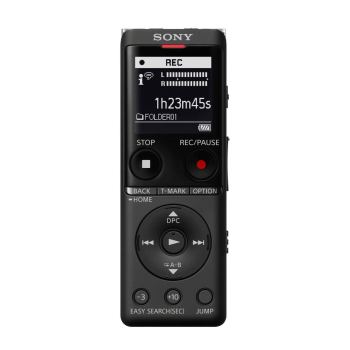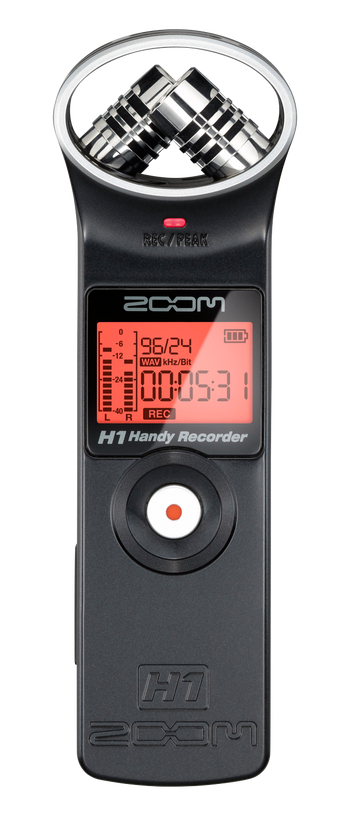- Excellent audio quality
- User-friendly interface
- Compact and lightweight
- Long battery life
- Superior sound quality
- Compact and portable
- User-friendly interface
- Affordable price
- Limited built-in memory
- Shorter battery life
Sony ICD-UX570 vs Zoom H1n
When it comes to capturing high-quality audio, digital voice recorders have become an essential tool for professionals and hobbyists alike. Two popular models that often come up in conversations are the Sony ICD-UX570 and the Zoom H1n. In this comparison, we'll delve into the features, specifications, and performance of these two devices to help you decide which one best suits your needs.
Design and Build
The Sony ICD-UX570 has a sleek and compact design, measuring 4.3 x 1.5 x 0.7 inches and weighing approximately 2.9 ounces. The device is made of durable plastic and features a 2.4-inch color LCD display. On the other hand, the Zoom H1n has a slightly larger and more rugged design, measuring 4.8 x 1.7 x 1.3 inches and weighing around 2.5 ounces. The H1n's body is made of metal and features a 1.25-inch monochrome LCD display.
Audio Quality
Both devices are capable of recording high-quality audio, but they differ in their approach. The Sony ICD-UX570 uses a single microphone and can record up to 24-bit/96kHz WAV files, while the Zoom H1n features a pair of built-in microphones arranged in an X-Y pattern, allowing for wider stereo imaging and more detailed sound capture. The H1n can also record up to 24-bit/96kHz WAV files, but it has a slightly higher signal-to-noise ratio (SNR) than the Sony.
Recording Features
The Sony ICD-UX570 offers a range of recording features, including voice activation, noise reduction, and low-cut filtering. It also allows for recording in MP3 format, making it suitable for podcasting, interviews, and lectures. The Zoom H1n, on the other hand, is designed with musicians and filmmakers in mind, offering features like overdubbing, looping, and a built-in metronome. Additionally, the H1n has a more extensive range of recording formats, including WAV, MP3, and AAC.
Connectivity and Battery Life
Both devices have similar connectivity options, including USB, headphone output, and microSD card slots. However, the Zoom H1n has a longer battery life, with up to 10 hours of continuous recording on a single charge, compared to the Sony's 6-8 hours. The H1n also supports external power via USB, making it more convenient for extended recording sessions.
Price and Value
The Sony ICD-UX570 is generally priced lower than the Zoom H1n, with a street price of around $100-$150. The Zoom H1n, on the other hand, typically retails for $150-$200. While the Sony offers excellent value for its price, the Zoom's additional features and improved audio quality make it a more attractive option for professionals and serious enthusiasts.
Conclusion
In conclusion, both the Sony ICD-UX570 and the Zoom H1n are excellent digital voice recorders that cater to different needs and budgets. The Sony is ideal for general-purpose recording, such as lectures, interviews, and meetings, while the Zoom is better suited for musicians, filmmakers, and podcasters who require higher audio quality and more advanced features. Ultimately, the choice between these two devices will depend on your specific requirements and preferences. If you prioritize ease of use and affordability, the Sony ICD-UX570 may be the better option. However, if you're willing to invest in a more feature-rich device with exceptional audio quality, the Zoom H1n is the way to go.


















